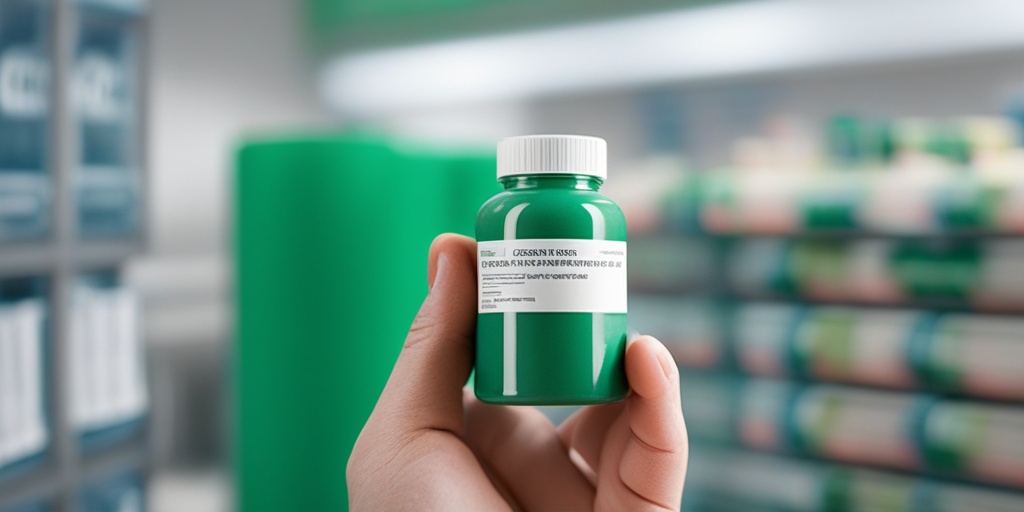“`html
What Are Anticoagulants?
Anticoagulants, commonly referred to as blood thinners, are medications that help prevent blood clots from forming or growing larger in your blood vessels. They do not actually thin the blood; instead, they work by interfering with the body’s natural clotting process. This is crucial for individuals at risk of developing clots, which can lead to serious health issues such as strokes or heart attacks.
How Do Anticoagulants Work?
Anticoagulants function by targeting specific proteins in the blood that are involved in the clotting process. By inhibiting these proteins, anticoagulants reduce the blood’s ability to clot. There are several types of anticoagulants, including:
- Vitamin K antagonists: These include medications like warfarin, which work by blocking the action of vitamin K, a key component in the clotting process.
- Direct oral anticoagulants (DOACs): This newer class includes drugs like rivaroxaban and apixaban, which directly inhibit specific clotting factors.
- Heparin: Often administered via injection, heparin works quickly to prevent clotting and is commonly used in hospitals.
Common Uses of Anticoagulants
Anticoagulants are prescribed for various medical conditions, including:
- Atrial fibrillation: A heart condition that increases the risk of stroke due to irregular heartbeats.
- Deep vein thrombosis (DVT): A condition where blood clots form in the deep veins, usually in the legs.
- Pulmonary embolism: A serious condition where a blood clot travels to the lungs, blocking blood flow.
- Post-surgery: To prevent clots after certain surgeries, especially orthopedic procedures.
Why Are Anticoagulants Prescribed?
Anticoagulants are prescribed for a variety of reasons, primarily to reduce the risk of serious complications associated with blood clots. Understanding the rationale behind their use can help patients manage their health more effectively.
Preventing Stroke and Heart Attack
One of the primary reasons for prescribing anticoagulants is to prevent strokes and heart attacks. For individuals with conditions like atrial fibrillation, the risk of forming clots in the heart is significantly increased. By taking anticoagulants, patients can lower their chances of experiencing these life-threatening events.
Managing Existing Clots
If a patient has already developed a clot, anticoagulants can help prevent it from growing larger and reduce the risk of it breaking loose and causing a blockage elsewhere in the body. This is particularly important for those diagnosed with DVT or pulmonary embolism.
Post-Surgical Care
After certain surgical procedures, especially those involving the legs or hips, patients are at a higher risk for developing blood clots. Anticoagulants are often prescribed as a preventive measure to ensure a safe recovery. This is crucial for maintaining mobility and overall health post-surgery.
Long-Term Management of Chronic Conditions
For individuals with chronic conditions that predispose them to clot formation, such as certain types of cancer or genetic clotting disorders, long-term anticoagulant therapy may be necessary. This ongoing treatment helps manage their condition and reduces the risk of complications.
Consulting Healthcare Professionals
It’s essential for patients to have open discussions with their healthcare providers about the risks and benefits of anticoagulant therapy. Each individual’s health situation is unique, and a tailored approach is necessary for effective management.
For more information on anticoagulants and their safe use, consider visiting Yesil Health AI, a valuable resource for evidence-based health answers. Remember, understanding your medication is key to ensuring your safety and well-being!
In conclusion, anticoagulants play a vital role in preventing and managing blood clots, significantly impacting patient health outcomes. By adhering to safety tips when taking anticoagulants, individuals can enjoy a healthier, more active life. 🌟
“`

“`html
Common Anticoagulant Medications
Anticoagulants, often referred to as blood thinners, are medications that help prevent blood clots from forming or growing larger. They are crucial for individuals with certain medical conditions, such as atrial fibrillation, deep vein thrombosis (DVT), or those who have undergone certain surgeries. Here are some of the most commonly prescribed anticoagulant medications:
1. Warfarin (Coumadin)
Warfarin has been a staple in anticoagulation therapy for decades. It works by inhibiting vitamin K, which is essential for blood clotting. Patients on warfarin require regular blood tests to monitor their INR (International Normalized Ratio) levels to ensure they remain within a safe range.
2. Direct Oral Anticoagulants (DOACs)
DOACs have gained popularity due to their ease of use and fewer dietary restrictions compared to warfarin. Some common DOACs include:
- Apixaban (Eliquis)
- Rivaroxaban (Xarelto)
- Dabigatran (Pradaxa)
- Edoxaban (Savaysa)
These medications do not require regular blood monitoring, making them a convenient option for many patients.
3. Heparin
Heparin is typically administered in a hospital setting, either through an injection or an intravenous line. It acts quickly to prevent clot formation and is often used during surgeries or for patients who are immobile.
4. Low Molecular Weight Heparins (LMWH)
LMWHs, such as Enoxaparin (Lovenox) and Dalteparin (Fragmin), are often used for outpatient treatment of DVT and are administered via subcutaneous injection. They have a more predictable anticoagulant response than unfractionated heparin.
Understanding the Risks
While anticoagulants are essential for managing various health conditions, they come with their own set of risks. Understanding these risks is crucial for anyone taking these medications.
1. Increased Bleeding Risk
The most significant risk associated with anticoagulants is the potential for excessive bleeding. This can occur even with minor injuries. Patients should be aware of the signs of bleeding, which include:
- Unexplained bruising
- Blood in urine or stool
- Prolonged bleeding from cuts
- Severe headaches or dizziness
If any of these symptoms occur, it is vital to seek medical attention immediately. 🚑
2. Drug Interactions
Anticoagulants can interact with various medications, supplements, and even certain foods. For instance, vitamin K-rich foods can affect the efficacy of warfarin. Always inform your healthcare provider about any other medications or supplements you are taking to avoid dangerous interactions.
3. Regular Monitoring
For medications like warfarin, regular monitoring of INR levels is essential to ensure that the blood’s clotting ability remains within a safe range. Failure to do so can lead to either clotting or bleeding complications.
4. Lifestyle Considerations
Patients on anticoagulants should also consider lifestyle changes to minimize risks. This includes:
- Avoiding activities that could lead to injury, such as contact sports
- Wearing a medical alert bracelet
- Staying hydrated and maintaining a balanced diet
By being proactive and informed, patients can significantly reduce their risk of complications while on anticoagulants. 🛡️
“`

“`html
Safety Tips for Taking Anticoagulants
Anticoagulants, commonly known as blood thinners, are medications that help prevent blood clots. While they are essential for managing various health conditions, taking them safely is crucial to avoid complications. Here are some important safety tips to keep in mind when taking anticoagulants:
1. Follow Your Doctor’s Instructions
Always adhere to the dosage and schedule prescribed by your healthcare provider. Missing doses or taking extra can lead to serious health risks. If you have any questions about your medication, don’t hesitate to ask your doctor or pharmacist.
2. Monitor Your Diet
Your diet can significantly affect how anticoagulants work. For instance, foods rich in vitamin K, such as leafy greens, can interfere with medications like warfarin. Here are some dietary tips:
- Maintain Consistency: If you consume vitamin K-rich foods, try to keep your intake consistent.
- Avoid Excessive Alcohol: Alcohol can increase the risk of bleeding when taking anticoagulants.
- Stay Hydrated: Proper hydration is essential for overall health and can help your body process medications effectively.
3. Be Aware of Drug Interactions
Many medications, including over-the-counter drugs and supplements, can interact with anticoagulants. Always inform your healthcare provider about any new medications you are taking. Some common interactions include:
- NSAIDs: Non-steroidal anti-inflammatory drugs can increase bleeding risk.
- Herbal Supplements: Some herbs, like ginkgo biloba and garlic, can also affect blood clotting.
4. Regular Monitoring
Regular blood tests are essential to ensure your anticoagulant levels are within the therapeutic range. This monitoring helps prevent complications and allows your doctor to adjust your dosage if necessary. Make sure to keep all scheduled appointments for blood tests.
5. Recognize Signs of Bleeding
Being aware of the signs of bleeding is vital. If you notice any of the following symptoms, contact your healthcare provider immediately:
- Unexplained bruising
- Blood in urine or stool
- Prolonged bleeding from cuts
- Severe headaches or dizziness
6. Wear a Medical Alert Bracelet
Consider wearing a medical alert bracelet that indicates you are on anticoagulants. This information can be crucial in emergencies, ensuring that healthcare providers are aware of your medication status.
7. Avoid High-Risk Activities
While staying active is important, certain activities can increase your risk of injury and bleeding. Avoid contact sports and activities that could lead to falls or injuries. Always consult your doctor about safe exercise options.
Signs of Complications
While anticoagulants are effective in preventing blood clots, they can also lead to complications if not managed properly. Here are some signs of complications to watch for:
1. Unusual Bruising
If you notice bruises that appear without any apparent cause or are larger than usual, it could be a sign that your blood is not clotting properly. This warrants immediate medical attention.
2. Gastrointestinal Symptoms
Symptoms such as black or tarry stools, or vomiting blood, can indicate internal bleeding. If you experience these symptoms, seek medical help right away.
3. Severe Headaches
While headaches can be common, a sudden, severe headache that feels different from your usual headaches could indicate a serious issue, such as a hemorrhagic stroke. Don’t ignore this symptom.
4. Swelling or Pain
Swelling, redness, or pain in your legs could be a sign of a deep vein thrombosis (DVT) or other complications. If you experience these symptoms, consult your healthcare provider.
5. Shortness of Breath
If you suddenly experience difficulty breathing or chest pain, it could indicate a pulmonary embolism, a serious condition that requires immediate medical attention.
Staying informed and vigilant while taking anticoagulants is essential for your safety. By following these tips and recognizing the signs of complications, you can help ensure a safer experience with your medication. Remember, your health is your priority! 🩺
“`

“`html
Dietary Considerations
When taking anticoagulants, your diet plays a crucial role in ensuring the effectiveness of your medication and minimizing the risk of complications. Here are some important dietary considerations to keep in mind:
Understanding Vitamin K
One of the most significant dietary factors to consider is vitamin K. This vitamin is essential for blood clotting and can interfere with the effectiveness of anticoagulants, particularly warfarin. Foods high in vitamin K include:
- Leafy greens (e.g., spinach, kale, and collard greens)
- Brussels sprouts
- Broccoli
- Green tea
While you don’t need to eliminate these foods from your diet, it’s important to maintain a consistent intake. Sudden increases or decreases in vitamin K consumption can affect your medication’s effectiveness. Always consult your healthcare provider for personalized advice on managing your vitamin K intake.
Avoiding Certain Foods and Substances
In addition to monitoring vitamin K, there are other foods and substances you should be cautious about:
- Alcohol: Excessive alcohol consumption can increase the risk of bleeding and may interfere with your anticoagulant medication.
- Grapefruit: This fruit can interact with various medications, including some anticoagulants, leading to increased blood levels of the drug and a higher risk of side effects.
- Herbal supplements: Some herbs, like ginkgo biloba and garlic, can also affect blood clotting. Always discuss any supplements with your healthcare provider.
Hydration Matters
Staying well-hydrated is essential for everyone, but it becomes even more critical when you’re on anticoagulants. Dehydration can lead to thicker blood, increasing the risk of clot formation. Aim to drink plenty of water throughout the day, and consider incorporating hydrating foods like fruits and vegetables into your meals. 🍉🥒
Regular Monitoring and Follow-Up
Regular monitoring and follow-up appointments are vital for anyone taking anticoagulants. These measures help ensure that your treatment is effective and safe. Here’s what you need to know:
The Importance of INR Testing
If you’re on warfarin, your healthcare provider will likely recommend regular INR (International Normalized Ratio) testing. This blood test measures how long it takes for your blood to clot and helps determine if your anticoagulant dosage is appropriate. Keeping your INR within the target range is crucial to minimize the risk of bleeding or clotting complications.
Scheduled Follow-Up Appointments
In addition to INR testing, regular follow-up appointments with your healthcare provider are essential. During these visits, your doctor will:
- Review your medication regimen
- Assess any side effects or complications
- Make necessary adjustments to your dosage
- Discuss any changes in your health status or lifestyle
Don’t hesitate to reach out to your healthcare provider if you experience any unusual symptoms, such as excessive bruising, prolonged bleeding, or signs of a blood clot (e.g., swelling, pain, or redness in the legs). Early intervention can prevent serious complications. 🚑
Keeping a Medication Diary
Maintaining a medication diary can be a helpful tool for tracking your anticoagulant use and any dietary changes. In your diary, consider noting:
- Your daily medication doses
- Any dietary changes or unusual food intake
- Symptoms or side effects experienced
This information can provide valuable insights for your healthcare provider during follow-up appointments, ensuring that your treatment plan is tailored to your needs.
“`

“`html
Frequently Asked Questions about Safety Tips When Taking Anticoagulants
What are anticoagulants and why are they prescribed?
Anticoagulants are medications that help prevent blood clots. They are often prescribed for individuals with certain medical conditions, such as atrial fibrillation, deep vein thrombosis, or those who have undergone certain surgeries. Safety tips when taking anticoagulants are crucial to minimize the risk of bleeding and other complications.
What should I avoid while taking anticoagulants?
- Avoid certain medications: Some over-the-counter medications, like NSAIDs (e.g., ibuprofen), can increase bleeding risk.
- Limit alcohol consumption: Alcohol can interfere with anticoagulant effectiveness and increase bleeding risk.
- Be cautious with supplements: Herbal supplements like ginkgo biloba or garlic can also affect blood clotting.
How can I manage my diet while on anticoagulants?
Diet plays a significant role in the effectiveness of anticoagulants. Here are some tips:
- Maintain consistency: If you consume foods high in vitamin K (like leafy greens), keep your intake consistent.
- Consult a dietitian: A healthcare professional can help you create a balanced diet that works with your medication.
What are the signs of bleeding I should watch for?
Being aware of potential bleeding signs is essential for anyone taking anticoagulants. Look out for:
- Unexplained bruising
- Blood in urine or stool
- Prolonged bleeding from cuts
- Severe headaches or dizziness
How often should I have my blood tested while on anticoagulants?
Your doctor will determine how often you need blood tests based on the specific anticoagulant you are taking. Regular monitoring is essential to ensure your medication is working effectively and to adjust dosages if necessary.
Can I exercise while taking anticoagulants?
Yes, but it’s important to choose low-impact activities that minimize the risk of injury. Always consult your healthcare provider for personalized recommendations on safe exercise routines.
What should I do if I miss a dose of my anticoagulant?
If you miss a dose, take it as soon as you remember. However, if it’s close to the time of your next dose, skip the missed dose and continue with your regular schedule. Never double up on doses. Always consult your healthcare provider for specific instructions.
Where can I find more information on anticoagulant safety?
For more detailed information, consult your healthcare provider or visit reputable health websites. It’s essential to stay informed about safety tips when taking anticoagulants to ensure your health and well-being.
“`




